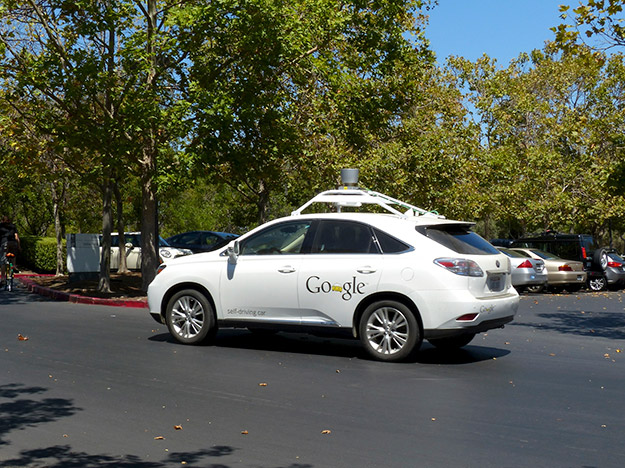White House Hands Down Guidelines For Influx Of Self-Driving Cars
The White House is fully embracing self-driving vehicles. Jeffrey Zients, Director of the National Economic Council and Anthony Foxx, Secretary of the United States Department of Transportation, released the first self-driving guidelines which outline safety expectations and called for consistent regulations.
The United States government supports the self-driving industry because its believes that the vehicles will enhance safety, mobility, productivity, and sustainability. The government is also hopeful that self-driving vehicles will reduce the number of auto accidents and fatalities. Self-driving vehicles could provide mobility for those who do not have it, such as the elderly and those with disabilities, and reduce the cost of transportation for families, communities, and businesses. Many also argue that cars will reduce road congestion and carbon emissions.

The Department of Transportation’s policy package has four elements. First, it wants to work on vehicle performance guidelines for manufacturers, developers, and other organizations in order to encourage safety. Second, its wants to create a clear distinction between federal and state policies and responsibilities. Next, the government wants to examine the current regulations so that the National Highway Traffic Safety Administration can act accordingly. Lastly, it wants to create new rules and authorities the NHTSA can rely upon in the future.
The government has provided a 15-point assessment to address safety concerns. The assessment covers multiple issues including how to protect passengers’ privacy and what to do if the the technology fails while in motion. The government is also taking additional steps, such as the Implementation and Continuous Improvement of Policy and Smart Cities Commitments to further encourage the self-driving car industry.

These policies are particularly pertinent now that Uber has debuted its self-driving taxi service in Pittsburgh, Pennsylvania. Many were concerned about this move since the state of Pennsylvania has yet to pass any laws concerning self-driving cars or decide upon a procedure in case the vehicle should crash. The federal government’s latest policies should help alleviate what could potentially be a safety and legal nightmare.
The United States government supports the self-driving industry because its believes that the vehicles will enhance safety, mobility, productivity, and sustainability. The government is also hopeful that self-driving vehicles will reduce the number of auto accidents and fatalities. Self-driving vehicles could provide mobility for those who do not have it, such as the elderly and those with disabilities, and reduce the cost of transportation for families, communities, and businesses. Many also argue that cars will reduce road congestion and carbon emissions.

The Department of Transportation’s policy package has four elements. First, it wants to work on vehicle performance guidelines for manufacturers, developers, and other organizations in order to encourage safety. Second, its wants to create a clear distinction between federal and state policies and responsibilities. Next, the government wants to examine the current regulations so that the National Highway Traffic Safety Administration can act accordingly. Lastly, it wants to create new rules and authorities the NHTSA can rely upon in the future.
The government has provided a 15-point assessment to address safety concerns. The assessment covers multiple issues including how to protect passengers’ privacy and what to do if the the technology fails while in motion. The government is also taking additional steps, such as the Implementation and Continuous Improvement of Policy and Smart Cities Commitments to further encourage the self-driving car industry.

These policies are particularly pertinent now that Uber has debuted its self-driving taxi service in Pittsburgh, Pennsylvania. Many were concerned about this move since the state of Pennsylvania has yet to pass any laws concerning self-driving cars or decide upon a procedure in case the vehicle should crash. The federal government’s latest policies should help alleviate what could potentially be a safety and legal nightmare.

